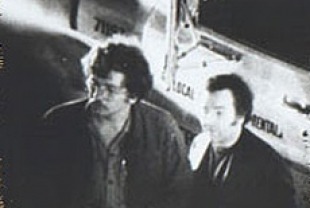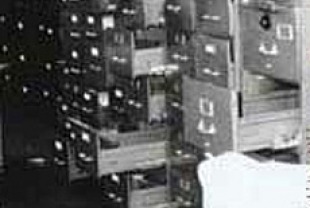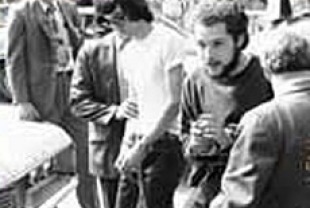Anthony Giacchino has been working as a producer in television and documentary filmmaking since 1994. This is his first feature-length documentary, and it is a first-class piece of work.
In August 1971, FBI Director J. Edgar Hoover and U.S. Attorney General John Mitchell announced the arrest and indictment of 28 antiwar activists for conspiring to remove and destroy files from the draft board, FBI office, and Army Intelligence office in Camden, New Jersey. The men and women arrested called themselves "America's conscience"; they were part of a nonviolent antiwar movement often called the "Catholic Left" by the media. Included in their number were four Catholic priests and one Lutheran minister; all the rest except one were Catholic laypeople. The Camden 28 wanted to call national attention to their belief that the killing in the Vietnam War was morally indefensible.
Giacchino has fashioned a riveting documentary that reveals a real-life drama involving conscience, friendship, and betrayal in a time of great cultural disarray when the country was torn apart by what many saw as an "illegal and immoral" war. He shows how the Camden group, led by Father Michael Doyle, planned the raid on the draft board offices and how they were frustrated until they received help from Bob Hardy, a handyman who was a Marine veteran. Although all the members of the group knew they were risking prison terms, they stuck to their plans. The FBI captured them in the draft board offices, and they were all arrested. One of them had betrayed them.
Giacchino presents commentary by many members of the Camden 28 and their lawyers about the 1973 trial. The defendants wanted the jury to join them in taking a stand against the Vietnam War. Howard Zinn testified at the trial and pointed out that civil disobedience has a long and rigorous tradition in American history. Father Doyle, a Camden diocese priest who was born in Ireland, draws a link between the urban desolation in his hometown and the ravaged landscape of Vietnam -- in both situations, the poor suffer the most. The outcome of the trial is a surprise to everyone.
Special DVD features include multiple interviews, bonus archival footage, the Camden 28 reunion, an essay from Howard Zinn, and filmmaker biographies.


